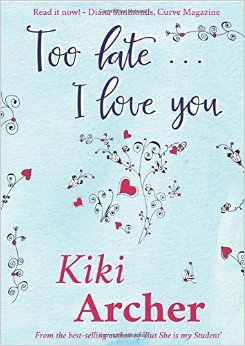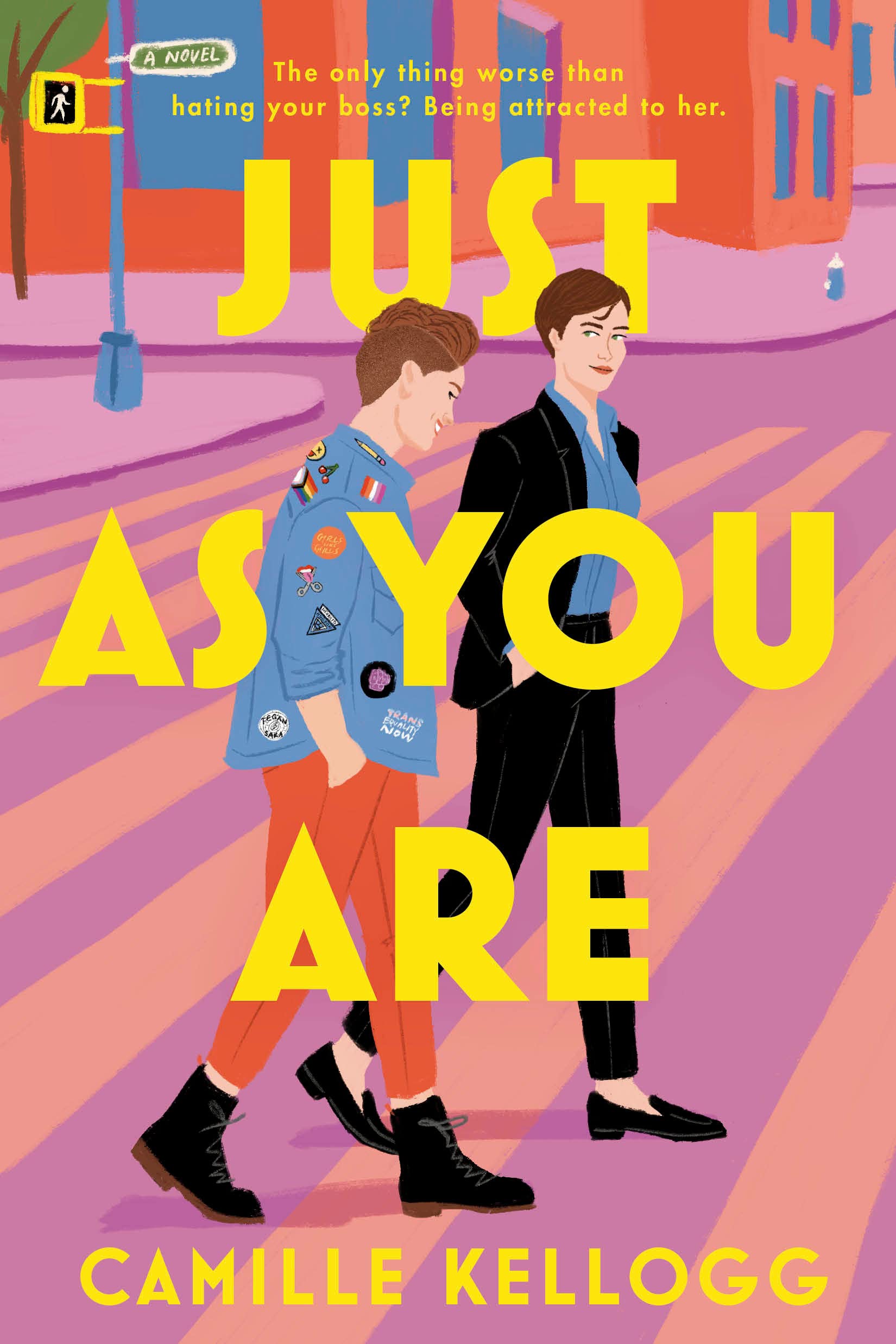Remember how I was just wishing I could read some romance involving lesbian parents? My wish came true in Kiki Archer’s new book, Too Late…I Love You! It features one out lesbian single mom, a few characters who surprise you, and some truly fun romance. Too Late…I Love You begins with the story of Connie, a young woman living with her boyfriend, Karl, and their three-year-old son, Noah, in London. Connie and Karl had only known each other a few months when Connie got pregnant and they’ve spent the years since then trying to do what they think is best for their child, even though they’ve never really been in love with one another. Karl works long hours and Connie stays home parenting and has recently started writing a romance that weaves its way through the novel. Karl and Connie aren’t terrible to each other, but they’re not happy together either. Connie’s okay plodding along because she adores her son and spends a lot of time with her best friend, Ryan, who’s gay and understands Connie in a way her boyfriend doesn’t. This seems like enough for Connie until she meets Maria, an out lesbian who has always been a single parent. Maria’s daughter, Alice, is just weeks older than Noah, and when the kids meet at playgroup, the children become fast friends. Their mothers bond and discover that they have similar senses of humor, values, and that they love talking to each other and flirting. Their friendship deepens as Connie’s unhappy partnership dissolves, and the characters wind their way to a happy ending–with a couple of surprising twists.
This was one of the most fun romances I’ve read in a long time. The premise sounds like angst might be on the horizon but Archer deftly avoids unnecessary drama. Karl and Connie act like mostly decent if imperfect people, even as they realize they’d do better apart. I appreciated that Karl and Connie’s decisions about their relationship are kept mostly separate from Connie’s growing friendship with Maria, and that they’d already separated before Connie and Maria edge toward anything more than friendship. Maria and Connie’s connection is illustrated through Archer’s excellent dialogue and it’s easy to see why they like being together. Though they get close fast, it makes sense. Both have been hungry for the company of another parent who gets them, and when they find each other, they’re delighted. Ryan and Connie can be judgmental and snarky, especially at the beginning, but they calm down quite a bit, especially once kind, self-assured Maria enters the scene. A novel within a novel can be hard to pull off, but here it’s used to great effect to show Connie’s inner world, the thoughts and feelings she isn’t always ready to admit even to herself.
Another thing I loved about this novel? There’s a minor bisexual character and multiple characters actually use the word “bisexual” to describe her–she even uses the word herself! When Connie wonders if bisexuals are “real,” Maria insists that of course they are. Since Maria is ten years older than Connie and Connie respects her and views her as sophisticated, this pronouncement carries a lot of weight. This book manages to steer clear of most bisexual tropes and that alone is quite possibly a reason to read it.
I also liked how Connie’s feelings and identity progressed in a natural way. She doesn’t have an identity crisis when she realizes that her friendly crush might just be a regular crush, but she does think about whether or not the word “straight” fits her anymore. Her language for herself changes over time. She handles her feelings like a modern young woman who has an out gay best friend, so the novel avoids coming out cliches. Connie also considers the other differences between herself and Maria that might prevent a relationship. For one thing, Maria’s older, more mature and worldly. For another, Maria’s from a family of successful restaurateurs and owns a cafe. Though Maria has stayed home with Alice, she has some work responsibilities, and she has a very different class background than Connie. She also has more sexual experience than Connie. Connie worries more about their real differences and her ability to be a satisfying partner to Maria than she does about her own sexual orientation. I thought this read as very realistic and, more importantly, like the characters were adults.
I cannot emphasize enough how much the characters in this book seemed like grown-ups. The characters’ motivations are understandable. You’re happy when Connie and Karl break up but he isn’t a monster, even if he’s sometimes a jerk. Connie’s concerns make sense and fit her personality. Even things I personally disagreed with–like Maria’s description of what “real” lesbian sex is like–were consistent with and true to the characters. When the final twist is revealed, a character’s previously unexpected actions make sense.
Without giving anything away, there are a couple of big surprises near the end. Some seemed like huge coincidences, but the foreshadowing was decent and I personally thought they were fun twists. In the end, the theme that family is chosen rather than just about biology stays strong, and that’s exactly what I want in a book about queer families.
Plus this book is hilarious. The dialogue and the goofy physical comedy shine. I cared about the characters and had a great time reading about them. I highly recommend this to fans of lesbian romance and anyone looking for fun light reading.


